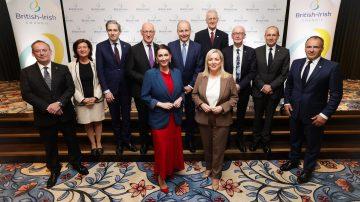Jersey’s Government has released the ‘Government Plan 2021-2024’ to reflect the response to Covid-19 and the plans being put in place to protect our Island’s future.
It brings together revised spending and investment plans to support the five strategic priorities, income forecasts and how the measures put in place to tackle the pandemic will be paid for.
Chief Minister, Senator John Le Fondré, said: “This, our second Government Plan, reflects the scale of the measures we’ve had to implement as we responded to the pandemic, while also protecting the Island’s future.
“We worked hard to save lives during the emergency pandemic phase and now that our robust testing and tracing system continues to suppress the virus in Jersey, we will continue to support Islanders’ jobs, livelihoods and the local economy. This year, we’ve had to re-examine the delivery timescales for some projects, re-prioritise how we use our resources, and re-think how we continue to invest in our Island.
“As well as continuing to support our five Common Strategic Priorities, our four key areas of focus for 2021 will be: responding to Covid-19 while protecting our health services, managing our economic recovery so we can invest in healthcare and education for the future, and rebalancing our finances responsibly without an increase in taxes.”
Focus areas for 2021
Responding to the ongoing health and wellbeing challenges of Covid-19 and protecting the health services
Islanders’ lives and livelihoods will continue to be protected be providing support where it is most needed and suppressing the virus until a vaccine can be provided.
This will be done by:
- Maintaining the Test, Trace and Contact programme
- Continuing to fund the Nightingale Field Hospital to at least March 2021
- Making sure PPE can be effectively and efficiently distributed PPE
- Funding the provision of a Covid-19 vaccine when it becomes available.
Investing in the economic recovery
The Government Plan outlines funding for new economic growth initiatives to drive the recovery. While the Co-Funded payroll Scheme, which has supported many Islanders, will be phased out by March 2021, sector-specific support over the winter will be provided.
The Fiscal Stimulus Package, announced in July, continues with the nine-month reduction in Social Security contributions starts this month and the £50 Fiscal Stimulus Fund will be debated in the States Assembly in November.
Areas that could receive future economic assistance include investment to support the construction industry, funding for skills and training and further investment in technology.
Investing in future healthcare and education to protect the future of Islanders
The Government Plan details the key initiatives in health and education that are important to the long-term sustainable wellbeing of Islanders.
These include:
- An ambitious three-year reform programme for the Island’s education system.
- A Covid-19 Schools Catch-Up Programme, to ensure that the loss of schooling for children and young people is addressed.
- Continued investment in the redesign of Children and Adolescent Mental Health Services (CAMHS), to support those experiencing mental ill-health.
- Implementation of the new Jersey Care Model, which will support the move to a more preventative-focused and community-based health service.
- Delivery of a new hospital, subject to Overdale being agreed by the States Assembly in November 2020 as the preferred site.
Rebalancing the public finances
The cost pressures of the health emergency and economic crisis, combined with the anticipated falls in Government revenues, will mean unprecedented financial deficits in 2020 and 2021.
Rather than cutting expenditure or drawing on the Strategic Reserve, the Government Plan proposes borrowing up to a maximum of £336 million next year, in addition to the Fiscal Stimulus Fund of £50 million, to fund the cost of the response to the pandemic.
It proposes repaying the debt, if the States Assembly approve the proposal to move Prior Year Basis taxpayers to Current Year Basis, by paying the future payments of the 2019 tax liabilities for Prior Year Basis taxpayers into a ring-fenced sinking fund. This would repay much, if not all, of this debt.
Headline initiatives for 2021-2024
Children
-
Implement a COVID-19 Schools Catch-up Programme
-
Continue to implement the Children’s Change Programme
-
Start a long-term programme to reform the education system
-
Invest in the redesign of Children and Adolescent Mental Health Services (CAMHS)
-
Provide Additional funding for the Youth Service Move on Café.
Health and wellbeing
-
Begin to implement the Jersey Care Model
-
Continue to deliver preventative and proactive schemes
-
Continue to support the reduction of preventable diseases
- Improve access to mental health services
- Continue to expand 24-hour community nursing and primary care services.
Economy
- Continue to develop and deliver the Future Economy Programme
- Fund the implementation of new Migration Control Policies
- Continue to deliver a Global Markets Strategy
- Continue to invest in Digital Jersey
- Fund projects to support the economic recovery.
Environment
-
Use the Climate Emergency Fund to support a new sustainable transport plan
-
Continue to improve countryside access
-
Tackle the climate emergency and become a sustainable, low-carbon jurisdiction
-
Increase the subsidy for the bus network
-
Invest in research into inland water quality.
Inclusivity
- Continue to improve support and protection for tenants
- Better support for disabled adults living at home
- Fund the forecast overspend on Income Support in 2021-2024
- Fund the Co-Funded Payroll Scheme until March 2021
- Modernise the personal income tax system
Modernising Government
- Modernise the public sector using digital technologies
- Deliver efficiencies from 2020 to 2023 through the Efficiencies Programme
- Continue to transform public finances.
 Jersey’s Chief minister, Senator John Le Fondre, said: “This plan, which will be debated by the States Assembly during the week commencing the 14th December, represents our vision for Jersey and our commitment to protect our Island’s future.
Jersey’s Chief minister, Senator John Le Fondre, said: “This plan, which will be debated by the States Assembly during the week commencing the 14th December, represents our vision for Jersey and our commitment to protect our Island’s future.
“It sets out how we will keep protecting Islanders from the risks to health and livelihoods posed by the COVID-19 pandemic, while ensuing we also meet the objectives we set out in our Common Strategic Policy.
When we introduced the first Government Plan last November, nobody could have predicted the impact that COVID-19 would have on our lives, on our community and on our economy.
“The pandemic has substantially disrupted the work of Governments across the globe, and this has also been true for Jersey. It has impacted on our income and created a significant increase in our expenditure. It has compelled us to re-examine the delivery of some projects, to re-prioritise how we use our resources, and to re-think how we invest in our Island.
“Protecting Islanders, especially those at highest risk, remains our first priority and we will continue to manage the healthcare challenges presented by COVID-19 as part of this Government Plan. We’ll provide investment and extra resilience to essential services, fund the Nightingale Wing, distribute PPE, and do what is necessary to supress the virus until a vaccine can be provided.
“To drive our economic recovery, we’ll continue to provide support to local businesses through new economic stimulus measures and growth initiatives, including establishing a Fiscal Stimulus Fund, subject to States Assembly approval.
“We must also be prepared to address the long-term impact on our public finances.”
 Jersey’s Treasury Minister, Deputy Susie Pinel, commented: “This Government Plan sets out the expected costs for us to manage the virus in Jersey, without limiting, unnecessarily, normal economic activity. This will protect the health and wellbeing of Islanders while also preserving their livelihoods and businesses.
Jersey’s Treasury Minister, Deputy Susie Pinel, commented: “This Government Plan sets out the expected costs for us to manage the virus in Jersey, without limiting, unnecessarily, normal economic activity. This will protect the health and wellbeing of Islanders while also preserving their livelihoods and businesses.
“We are though conscious that we need to balance the risks. A second wave in Europe and the UK and a sharp slowdown in the world economy as a result of Covid-19, has to be balanced against the risk that we cause irreversible damage to our and our children’s future by introducing costly restrictions on our economy during a period of recovery.
“In this Government Plan we’ll look to balance these risks by running deficits to support spending and investment in the coming years, with a return to balanced budgets by 2024.
“It is our view that, in these uncertain times, we should not plug our financial hole by making damaging cuts to expenditure or by drawing on the Strategic Reserve. Instead, and in line with the recommendations of the Fiscal Policy Panel, we are proposing to borrow up to a maximum of £336 million next year, in addition to the Fiscal Stimulus Fund of £50 million, to fund the cost of the response to the pandemic.
“This will be possible because of our strong financial position, low debt levels and a high credit rating going into this crisis. But, we are well aware that debt has to be repaid and we are proposing that, should the States Assembly approve my proposal to move Prior Year Basis taxpayers to Current Year Basis, the future payments of the 2019 tax liabilities for Prior Year Basis taxpayers will be paid into a ring-fenced sinking fund. This will repay much, if not all, of this debt.
“These payments would be time limited and they avoid the need to raise taxes on Islander’s working hard to preserve their livelihoods following the necessary lockdown measures. This approach would also ensure that the debts we incur to protect the Island from the effects of Covid-19 now, do not become a long-term issue for the next generation of Islanders and we do our best to protect their future.”















